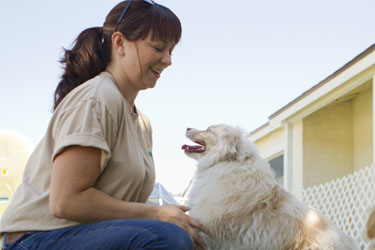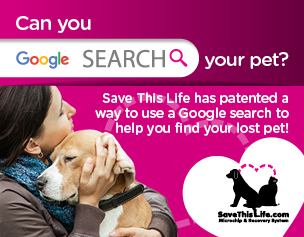Veterinarian Tips: 11 Questions to Ask a Boarding Kennel

Whether you’ve added pet boarding as a revenue stream for your veterinary practice, your clients trust you as the expert on anything to do with their pets. Providing them with information to make them better pet owners not only helps them, it builds a relationship with clients that will have them returning to you again and again.
Below is information you can provide to your clients in a handout or on your website.
11 Questions to Ask a Boarding Kennel
#1 How far in advance do I need to book?
Many boarding kennels, especially during holidays, are booked weeks or months in advance. Make sure you know how far in advance you need to book a stay and whether a deposit is required when booking.
#2 What vaccinations do you require?
Most kennels require vaccinations, but the industry is still largely unregulated so it’s best to ask. Below are the minimum vaccinations the kennel should require.
Canine Vaccines
- Canine Distemper
- Infectious Hepatitis
- Canine Parvovirus
- Rabies
Feline Vaccines
- Feline Panleukopenia
- Feline Herpesvirus
- Feline Calicivirus
- Rabies
If the kennel does not require vaccinations, ask them how they quarantine animals to prevent infection. Disease can be spread by contact with bodily fluids and even air. And even if your pet is vaccinated, there is always the chance it might be susceptible to disease.
#3 How are the animals housed?
- Cats and dogs should never be kept within view or hearing of each other. Dogs should not be able to easily see each other either. Most kennels put up barriers inside the kennel space to prevent this, but some have no consideration for the view where the door is.
- The area should be well ventilated.
- Make sure there’s enough room for your pet to move around and enough space for them to defecate or urinate if they need to. Cats should have a litter box in their space.
#4 How often are dogs taken out?
Dogs should be let out a minimum of 3 times in a 24-hour period, although 5 times is better. Ask them the times they take the dogs out and for how long. If your dog is in the habit of defecating each morning, they may take longer. Ask if they’re taken out on a leash or released into an outside pen. If they’re released into an outside pen, does the employee stay with the animal or go back inside for a designated period? How big is the exercise area?
#5 Do staff members play with or pet the animal?
Ask specifically if there are designated times for staff to interact with your pet, how long staff members stay with them, and how they interact.
#6 Can they accommodate pets with special needs?
If you have an elderly pet or one with special needs, this information is critical. If they say they can, ask them how they will accommodate your animal.
#7 Will they feed your pet its regular food?
Veterinarians advise against changing your pet’s food, because it’s likely to result in digestive upset.
#8 Do they provide additional services?
Many boarding kennels, whether or not they’re part of a veterinary practice, offer additional services for a fee, such as brushing, washing, training, nail trimming (for dogs) or extra play time. Veterinary boarding kennels frequently offer vaccinations and other minor procedures, too. Some kennels offer playgroups your pet may enjoy.
#9 Can I take a tour?
If they are not willing to give you a tour when you show up unannounced, leave immediately.
#10 Does the kennel have an emergency plan?
Even if you don’t live in a flood-, hurricane- or tornado-prone area, fire is always an issue.
#11 Are staff members trained?
If you are not using veterinary boarding, make sure the staff has received training and certification.
Warning Signs of a Bad Boarding Experience
Here are some warning signs that the kennel may not be a good fit for your pet.
- It smells bad.
- Outdoor pens are small and do not have shelter from the sun.
- Your pet smells bad when you pick it up.
- The employees tell you nothing about your pet when you pick it up.
Your Covetrus representative can provide other tips and suggestions of value to you and your clients! Contact us at 855.724.3461.
Sources:
http://www.ibpsa.com/top-4-questions-vets-have-about-pet-boarding-and-daycare/
http://www.sheltermedicine.com/library/resources/facility-design-and-animal-housing
https://www.cesarsway.com/dog-behavior/housebreaking-issues/how-often-should-a-dog-urinate
https://www.dogfoodinsider.com/prepare-your-dog-for-boarding/


Working Here
Our team members are encouraged to be the best they can be... at Covetrus we believe we impact one another.
Learn MoreNews & Events
FDA Cautions Pet Owners Not to Feed Texas Tripe Inc. Raw Pet Food Due to Salmonella, Listeria Monocytogenes
The U.S. Food and Drug Administration is cautioning pet owners not to feed their pets any of the Texas Tripe brand raw frozen pet food listed below because several samples of Texas Tripe raw pet food have tested positive for Salmonella and/or L. mono.
Careers
Are you looking for a place to let your talents shine? At Covetrus, we help our practitioner customers better serve their patients and take pride in providing the best customer experience possible. Search our open positions to see our available opportunities.
Newsletter
Stay current with what’s going on with Covetrus, subscribe to receive our newsletter and email communications. Subscribers will receive the latest information in practice management, sales and marketing, animal health, and more.



-3-(1).png?sfvrsn=2d806d73_0)

Leave a comment